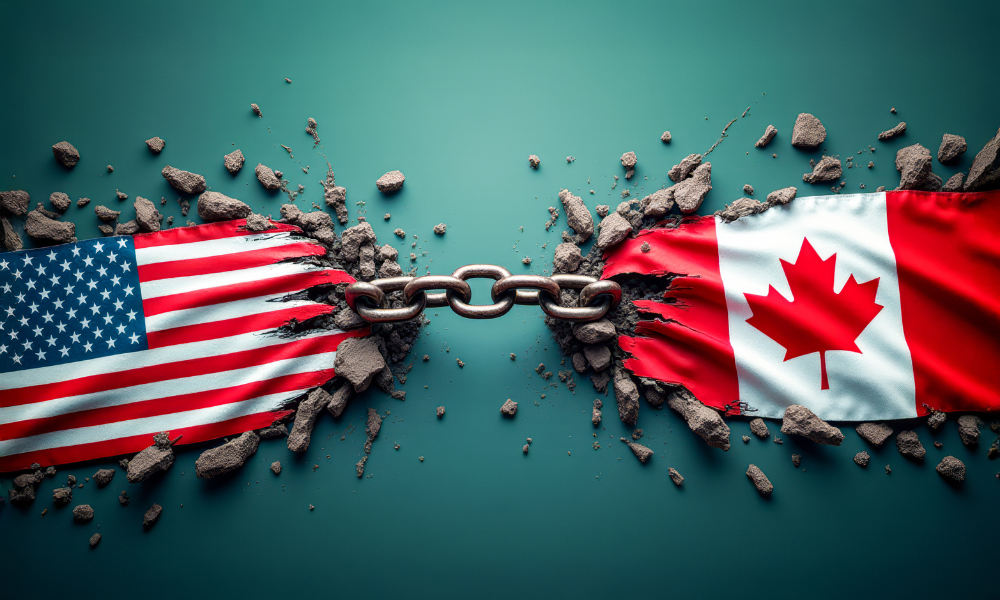President says new 25% tariffs will apply to all countries, Canadian position unclear

Canada’s temporary relief from US tariffs on a range of goods has a new element of uncertainty following a new announcement from President Trump.
Speaking to reporters on board Air Force One on Sunday, the president said he was imposing a 25% levy on all imports of steel and aluminum from all countries. He did not give exact details of when they would be introduced but hinted that it could be as soon as Tuesday or Wednesday with further details likely Monday.
It appears that Canada and Mexico would not be exempt despite the agreement to boost border security in return for a pause on tariffs. For the Canadian steel industry, it means a return to the days of Trump’s first term in the White House when imports to the US were subjected to a 25% tariff while there was 10% on aluminum.
Steel exports from Canada to the US are worth more than U$11 billion according to US Census Bureau data, making Canada easily the largest exporter of steel to the US, so a 25% tariff is a significant cost for those importing it.
Quebec premier Francois Legault responded on social media to say the US-Mexico-Canada trade deal negotiations need to start as soon as possible to end the uncertainty, and Ian de Verteuil, a strategist at CIBC Capital Markets, agreed.
“The best we can hope for is a relatively rapid and intense start to USMCA renegotiations,” he wrote in a client email. “As we have said in the past, the threat of tariffs by the Americans is often as effective as tariffs themselves – it makes investing in Canada and Canadian equities riskier.”
State backing
Meanwhile, with tariffs still hanging over Canadian exporters, the federal government is appealing directly to US states that do the most trade with Canada.
Trade minister Mary Ng was interviewed over the weekend while in Europe and said that the government was making the case that Americans will be negatively impacted by a weakening of US-Canada trade relations.
“It’s really important for the Americans to themselves arrive at a conclusion that tariffs are actually going to make life more expensive for Americans,” Ng said.
The trade minister was in Brussels to meet with her EU counterpart in the hopes of furthering the progress of the CETA trade agreement which has been ratified by 17 of the 27 EU states along with the UK.



